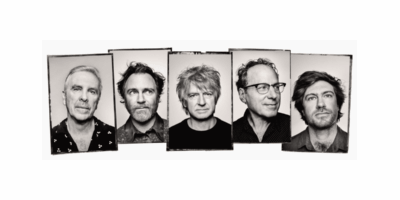A new teaser for the Kendrick Lamar mini-documentary was just released and its presence has created a conversation around film on Twitter.
A teaser for the Kendrick Lamar mini-doc covering his trip to Ghana has just dropped on Twitter. During certain scenes from the clip, the film has a noticeable yellow color grade. This is something that is commonly seen in Hollywood-made films that are set in Latin America, the African continent, and southeast Asia among other areas that are generally seen by the West, and more specifically the United States, as underdeveloped.
One fan was curious as to why this has continually happened to these areas and took a deeper dive into the subject matter.
“Spotify just dropped a teaser for a mini-documentary following Kendrick Lamar’s trip to Ghana”
https://twitter.com/PigsAndPlans/status/1535015626736996353
Here is the full thread on why this practice is so pervasive within Hollywood:
“I would love to read an essay on the politics of color grading in film and how it shapes our perception of people and places.”
Love Music?
Get your daily dose of metal, rock, indie, pop, and everything else in between.
I would love to read an essay on the politics of color grading in film and how it shapes our perception of people and places. https://t.co/izT3lpDrXI
— Ẹniafẹ́ Momodu ✨ (@EniafeMomodu) June 12, 2022
“So, I did a quick Google search and found a great video by
which features a diverse group of filmmakers and colorists talking about this exact phenomenon and its origins / social implications. Definitely worth a watch”
https://twitter.com/EniafeMomodu/status/1536080386941407233
“This one isn’t about color grading per se, but still an interesting video by
on the invention of color film and how its technology was biased against darker skin tones, for anyone interested.”
This one isn't about color grading per se, but still an interesting video by @voxdotcom on the invention of color film and how its technology was biased against darker skin tones, for anyone interested.https://t.co/vZctEGXmxj
— Ẹniafẹ́ Momodu ✨ (@EniafeMomodu) June 13, 2022
“Sadly there doesn’t seem to be a lot of available literature on the original topic but since a lot of people seem interested in this, maybe some new research papers or videos will emerge in the near future.”
Sadly there doesn't seem to be a lot of available literature on the original topic but since a lot of people seem interested in this, maybe some new research papers or videos will emerge in the near future. pic.twitter.com/rlJbO5W9ke
— Ẹniafẹ́ Momodu ✨ (@EniafeMomodu) June 13, 2022
“This is partly why I hold “Black Is King” in high regard. “Keys To The Kingdom”, “Ja Ara E”, “ALREADY”, and sections of “Water/Otherside” shifted focus from the “sepia-toned desertscape”, and shared vibrant African land/cityscapes we don’t usually see in non-NatGeo Western media.”
This is partly why I hold "Black Is King" in high regard. "Keys To The Kingdom", "Ja Ara E", "ALREADY", and sections of "Water/Otherside" shifted focus from the "sepia-toned desertscape", and shared vibrant African land/cityscapes we don't usually see in non-NatGeo Western media. pic.twitter.com/EKkFJcw1iE
— ARCHANGEL (@archangelsounds) June 13, 2022
“This is also what happens when you collaborate with African diaspora filmmakers/photographers who make it their duty to show the beauty of their home continent.
(Shout-out to collaborators/creatives Emmanuel Adjei, Blitz Bazawule, Ibra Ake, Jenn Nkiru, and Dafe Oboro!)”
This is also what happens when you collaborate with African diaspora film-makers/photographers who make it their duty to show the beauty of their home continent.
(Shout-out to collaborators/creatives Emmanuel Adjei, Blitz Bazawule, Ibra Ake, Jenn Nkiru, and Dafe Oboro!) pic.twitter.com/YSqxnJM0z9
— ARCHANGEL (@archangelsounds) June 13, 2022

































